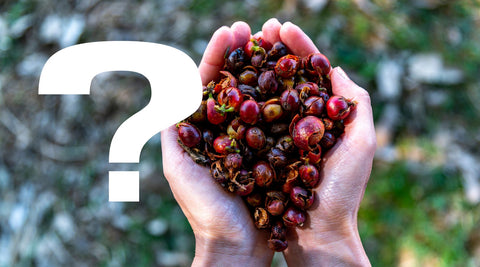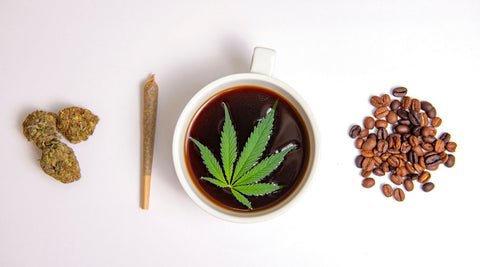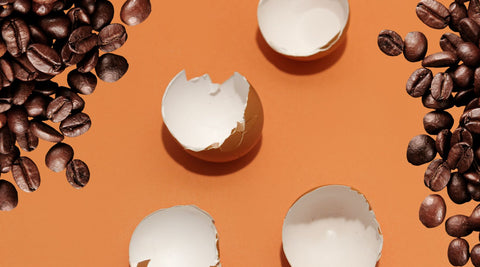You may have noticed a new offer from your favorite barista if you are a coffee enthusiast. The latest entrant is cascara. It is a tea-like beverage, but sweeter and creamier, with a punch of mild caffeine. Whether on the West or East coast, cascara is bound to take your favorite coffee café by storm. But, what is cascara? Let's find out.
What Is Cascara?
Cascara is a borrowed Spanish word that means shell or husk. Generally, coffee processing involves discarding the fruit shell to access the coffee beans. The beans are then dried and roasted to make coffee, which is used in cappuccino and latte, among other coffee types.
Over the last few decades, enthusiasts are now using cascara to make different drinks because of the desire to reduce wastage and explore more coffee plant capabilities. It uses the pulp and outer skin of the coffee seed. Currently, cascara farming is gaining traction across the globe.
What Is Cascara Good For?
Cascara is an alternative to typical coffee types. Cascara is the perfect choice if you want more than a latte, cappuccino, or flat white. Thanks to its unique extraction and processing method, it prevents wastage while offering a sweeter beverage. It is suitable for improving constipation as it inhibits water absorption in the small intestines.
Is Cascara Tea Or Coffee?
Well, most people will confuse cascara for tea or coffee. Also known as coffee cherry tea, it is neither coffee nor tea. However, the fruit grows on coffee plants. Generally, coffee makers will use the seeds and discard the cherry fruit.
But thanks to growing awareness of other uses of coffee, the cherry is used to make cascara beverages. As such, it falls between coffee and tea, hence the names cascara tea or coffee cherry tea. Interestingly, it has neither a coffee nor a tea taste. It's more of a herbal tea taste, synonymous with Middle East tea.
How Is Cascara Made?
To make cascara coffee, the cherry skin is separated from the seed and washed. Depending on an individual, one can clean them with water or vapor to kill pathogens. Once clean, it undergoes a drying process. Again, farms can sun-dried or use dehydrators, especially for commercial purposes.
While a new entrant in the beverage market, it is gradually gaining traction in South America. In fact, the University of Costa Rica, in collaboration with a few coffee farms, is researching how to produce food-grade cascara.
How To Use Cascara
Generally, making cascara is as easy as brewing any tea, with the typical steps being:
-
Bringing water to boil
-
Steeping the cherry husks into the boiling water
-
Waiting for 2 to 6 minutes, depending on their size
-
Straining the husks
-
Finally, enjoy your sweet beverage.
You should wait 2-3 minutes for small cut pieces, while coarse chucks need at least 6 minutes to brew. You can enjoy cascara hot or iced.
Hot cascara
Ingredients
| Cherry husks (5g) |
| 250ml water |
| Teapot |
Bring the water to a boil and steep the cherry husks in hot water. Brew for 3 to 6 minutes, then strain the cascara and enjoy.
Iced cascara
Ingredients
| Cherry husks (5g-10g) |
| 250ml water |
| 250g ice |
| Teapot |
| Glass |
Like hot cascara, bring the water to boil and steep the cherry husks. After 3 to 6 minutes, strain them and pour the liquid directly over the ice in a glass. For best results, ensure to double the amount of cherry husks.
What Does Cascara Taste Like?
While cascara comes from a coffee plant, it does not taste like brewed coffee. Instead, you get floral and honey notes since you brew the cherry husks as a whole. Besides, the cherry type will determine the beverage taste.
Other factors affecting taste are altitude, the region where coffee is grown, and the processing method. On average, cascara tastes sweet and sugary with raspberry, prune, and golden raisin flavors.
How Much Caffeine Is In Cascara?
Despite originating from a coffee plant, cascara has moderate caffeine levels: often a quarter of regular coffee. To be precise, it has 25mg of caffeine per cup compared to 80mg of regular coffee. As such, its caffeine composition is similar to green tea, which has 25mg per cup.
Cascara Health Benefits
Cascara has many benefits, among them:
Improves constipation: The anthraquinones found in bark help slow down electrolytes and water absorption in the small intestines. The excess water increases pressure in the small intestines, improving bowel movement significantly.
Improves liver health: It may also help improve your liver's health, thanks to the emodin compound. A study on rat liver showed that emodin helped prevent acetaminophen-induced liver damage. While not verified, further studies show that it can help treat gallstones.
May prevent cancer: Aloe-emodin, a compound in cascara, was found to aid cancer cell death. The study insists that it can help prevent cancer of the liver.
What Are The Side Effects Of Cascara?
Since most cascara coffee is sun-dried, there's increased susceptibility to toxins and mold, according to health experts. This means it can lead to bowel illnesses if consumed for a prolonged period. Besides, it can be harmful to people sensitive to caffeine. It can also cause occasional stomach discomfort, primarily when used as part of a diet.
If you consume it for more than two weeks, you'll have a higher risk of:
-
Muscle weakness
-
Heart problems
-
Low electrolytes levels
-
Dehydration
We recommend taking cascara in moderation to avoid adverse health problems. In addition, pregnant and breastfeeding mothers should avoid it since it can contaminate breast milk.
What is Cascara Coffee? Yay or Nay?
Cascara is no doubt a game-changer in the beverage industry. It is bound to reduce wastage while giving coffee and tea enthusiasts an alternative. It also comes with a host of benefits, such as improving constipation.
While rightly so, it has its downside, like reducing electrolyte levels, leading to muscle weakness and stomach discomfort. This means you should enjoy it will care to avoid harming your health. So, will you want hot or iced cascara? Let us know in the comment section.



